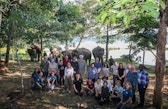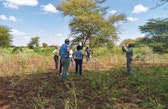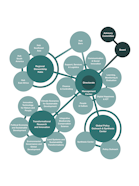Organization



Board
The Wyss Academy Board ensures that the goals and principles of the Wyss Academy for Nature are achieved with the greatest possible efficiency and effectiveness. The Board has overall operational, financial, and scientific responsibility and facilitates the Academy’s operations. It is supported by an international Advisory Committee.
Dr. h.c. Hansjörg Wyss
Board member, Entrepreneur and Philanthropist, Wyss Foundation
Board member, Entrepreneur and Philanthropist, Wyss FoundationDr. Molly McUsic
Board member and President of the Wyss Foundation
Board member and President of the Wyss FoundationProf. Dr. Christian Leumann
President of the Board and CEO ad interim of Bern University Hospital (Inselspital)
President of the Board and CEO ad interim of Bern University Hospital (Inselspital)André Nietlisbach
Vice-President of the Board and Secretary General of the Ministry of Economic Affairs, Energy and the Environment of the Canton of Bern
Vice-President of the Board and Secretary General of the Ministry of Economic Affairs, Energy and the Environment of the Canton of BernProf. Dr. Virginia Richter
Rector of the University of Bern, Professor of Modern English Literature and a board member of the Marcel Benoist Foundation
Rector of the University of Bern, Professor of Modern English Literature and a board member of the Marcel Benoist FoundationJohann Schneider-Ammann
Board member, Entrepreneur and Politician, Former Federal Councilor
Board member, Entrepreneur and Politician, Former Federal CouncilorProf. Dr. Peter Messerli
Director, Professor of Sustainable Development
Director, Professor of Sustainable Development
Advisory Committee
The Advisory Committee is an independent unit within the Wyss Academy for Nature. Reporting to the Board of the Wyss Academy, its task is to advise and challenge us: It provides outside views, innovative ideas and critical reflections in support of the Wyss Academy’s development, including its projects and incubators. Advisory Committee members are experts in a range of different areas relevant to our work, including science, nature conservation, land use, energy, indigenous knowledge and societal transformation.
Directorate
The Wyss Academy Director is responsible for the Academy’s operations. The Director grants mandates and assignments to achieve the Wyss Academy’s goals and to implement the annual plans as endorsed by the Board. They are supported by the members of the Directorate, which is composed of the heads of the Regional Stewardship Hubs, the Research & Innovation Teams, the Management Center, the Policy Outreach & Synthesis unit and Hub Bern.
Prof. Dr. Peter Messerli
Director, Professor of Sustainable Development
Director, Professor of Sustainable DevelopmentProf. Dr. Julie Zähringer
Professor of Land Systems and Sustainability Transformations
Professor of Land Systems and Sustainability Transformations























